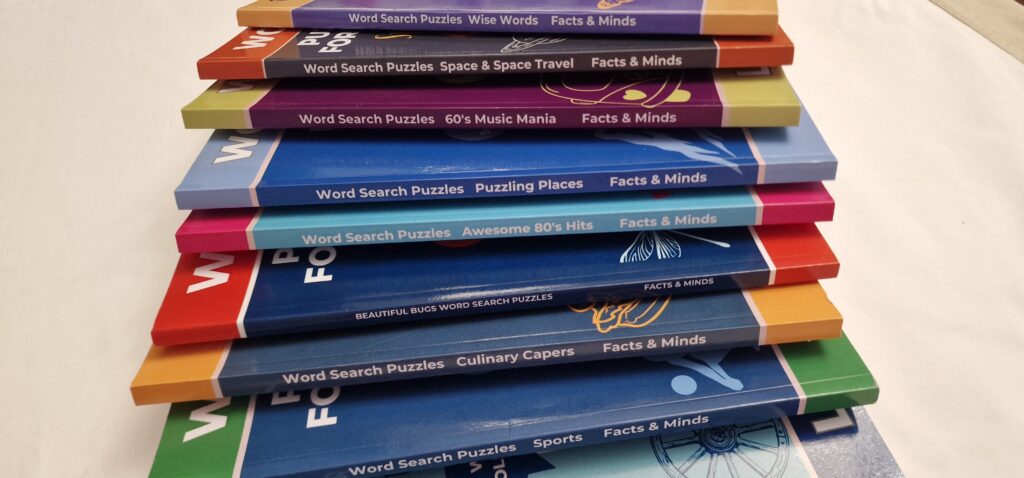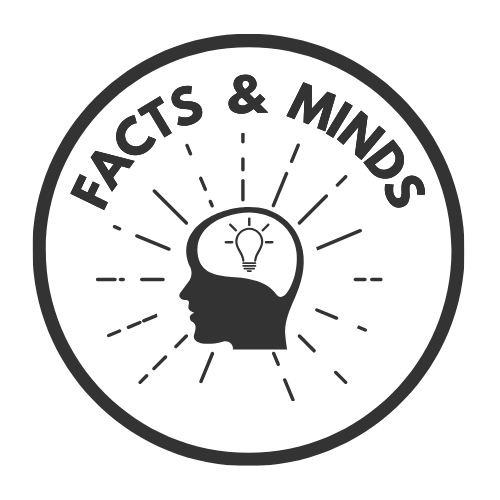Keeping Your Brain Active—One Puzzle at a Time

If you’ve ever walked into a room and immediately forgotten why you’re there, you might have had a fleeting moment of panic. Was it just a harmless brain blip, or something more? While occasional forgetfulness is normal, keeping your brain active is one of the best ways to promote long-term cognitive health. And what’s one of the easiest, most enjoyable ways to do that? Puzzles!
Could something as simple as word search puzzles really help prevent Alzheimer’s disease? Science suggests that keeping your mind engaged with activities like puzzles can support memory, focus, and cognitive function, potentially lowering the risk of cognitive decline. Let’s explore the fascinating science behind brain games, the role of large print puzzles for adults, and why word searches might just be the brain boost you need.
The Science of Puzzles and Brain Health
Mental Stimulation and Cognitive Reserve
Think of your brain as a muscle—the more you use it, the stronger it gets. Cognitive reserve refers to your brain’s ability to adapt and compensate for changes due to aging or neurological diseases like Alzheimer’s. Engaging in problem-solving activities, such as word search puzzles, helps build this reserve, keeping your mind resilient and flexible.
Think of your brain as a savings account. Every time you learn something new or challenge your mind, you’re making a deposit into your “cognitive reserve.” This reserve acts as a buffer against cognitive decline. Word search puzzles, and other puzzles designed for adults, are like making regular deposits into this mental bank account.
A 2019 study published in the journal Neurology found that people who engaged in mentally stimulating activities—like reading, writing, and puzzles—had a significantly lower risk of developing dementia (Source: Neurology).
Let’s get serious for a moment (but just a moment, I promise). Research has shown that keeping your brain actively engaged throughout life might help reduce the risk of Alzheimer’s disease and other forms of dementia. The science behind this is fascinating – and surprisingly logical.
Neuroplasticity: Keeping the Brain Adaptable
Neuroplasticity is your brain’s ability to reorganize and form new neural connections. This means that even as you age, your brain can continue to learn and adapt—especially if you challenge it with activities like puzzles. Word search puzzles encourage pattern recognition and problem-solving, which stimulates multiple areas of the brain.
Reducing the Risk of Cognitive Decline
The Alzheimer’s Association suggests that mentally engaging activities, such as puzzles, may delay or reduce the onset of Alzheimer’s symptoms (Source: Alzheimer’s Association). While puzzles won’t cure or completely prevent the disease, they are a valuable tool in promoting lifelong brain health.
How Word Search Puzzles Benefit the Brain
1. Memory Boosting
When you scan a word search puzzle, your brain actively works to recognize words, strengthening both short-term and long-term memory. Repeatedly exercising this skill improves recall and can help reduce forgetfulness.
2. Enhancing Focus and Attention
Finding words in a grid requires concentration and attention to detail. The more you practice, the better your focus becomes—an essential skill for daily tasks and mental clarity.
3. Stress Reduction and Relaxation
Cognitive stimulation doesn’t have to be stressful. Puzzles create a state of relaxed focus, similar to meditation, helping to reduce anxiety and improve overall well-being.
4. Social Connection and Engagement
Working on puzzles with friends, family, or in community groups fosters social interaction, another key factor in maintaining brain health. Studies show that staying socially active lowers the risk of dementia (Source: Harvard Health)
Brain Boosting Action Plan
Making It a Daily Habit
The key to potential Alzheimer’s prevention isn’t doing one super-intense puzzle session and then calling it quits (though we admire your enthusiasm!). It’s about consistent, regular engagement. Think of it as taking your brain for a daily walk – except you get to sit comfortably while doing it!
Beyond Word Searches: Creating a Brain-Healthy Lifestyle
While word searches are fantastic (and we’re not just saying that), they work best as part of a broader brain-health strategy:
- Regular physical exercise (yes, unfortunately, we had to mention it)
- Social engagement (discussing puzzle solutions counts!)
- Healthy diet (your brain cells will thank you)
- Quality sleep (beauty rest for your brain)

Your Action Plan for Brain Health
Ready to give your brain the workout it deserves? Start with 15-30 minutes of puzzle-solving daily. Make it a morning ritual with your coffee, an afternoon break from work, or an evening wind-down activity.
Why Large Print Word Search Puzzles Are Ideal
Not all puzzles are created equal, and when it comes to brain-boosting fun, large print word search puzzles are an excellent choice for adults. Here’s why:
- Easier on the eyes – No more squinting or struggling with tiny letters.
- Great for all ages – Perfect for seniors, adults, and anyone who loves word searches.
- Portable and screen-free – A great way to unwind without digital distractions.
- Engaging and fun – Challenging enough to keep your brain engaged, but relaxing enough to enjoy.
Where to Find the Best Large Print Word Search Puzzle Books
If you’re ready to boost your brainpower, check out our collection of 10 Large Print Word Search Puzzle Books. Designed for maximum readability and enjoyment, these books are perfect for keeping your mind sharp and engaged.
Find them here: Word Search puzzle books
Why You’ll Love These Books:
✔ Large, easy-to-read print – Say goodbye to tiny, frustrating text. ✔ A variety of fun themes – Keep things interesting with different word categories. ✔ Brain-boosting entertainment – Enjoyable and beneficial for cognitive health. ✔ Perfect for relaxation – A great way to unwind and de-stress.
Final Thoughts: Can Puzzles Really Make a Difference?
While puzzles alone won’t guarantee you’ll never forget where you left your keys, they do play a significant role in keeping the brain active, engaged, and resilient. Combined with a healthy lifestyle, social engagement, and regular mental challenges, word search puzzles can be a valuable tool in Alzheimer’s prevention and overall brain health.
So why not start today? Grab a puzzle book, challenge your mind, and enjoy the many benefits of large print word search puzzles.

Check out our collection here: Word Search puzzle books
References for Further Reading:
- National Institute on Aging (nia.nih.gov)
- Alzheimer’s Association (alz.org)
- Journal of the American Medical Association (jamanetwork.com)
- Mayo Clinic Brain Health Resources (mayoclinic.org)
- World Health Organization – Dementia Prevention (who.int)



